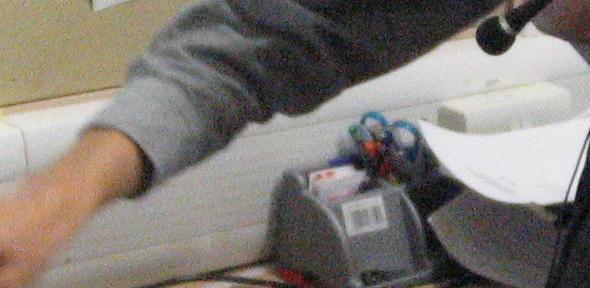
The University’s Disability Resource Centre encourages staff to take a broader view of disability
Most of us have an extremely narrow view of disability. Asked what springs immediately to mind when imagining a person with a disability, most people come up with the same answers: someone using a wheel chair or a guide dog.
This response neatly highlights some of the key challenges facing the University’s Disability Resource Centre (DRC). The Centre is keen to extend the support it offers to University staff and, in doing so, to broaden staff perceptions of disability to embrace conditions that arise as a result of wear and tear, accidents or injuries outside work, or the nature of tasks related to their occupations.
“In the minds of most people, disability relates directly to a visible physical disability,” says Judith Jesky, University Disability Adviser and Head of the DRC. “In terms of the total number of disabled people, wheelchair users represent just 4 per cent; those who are visually impaired, and might use a white stick or guide dog, just 6 per cent.”
She says the DRC is keen to raise awareness of support for staff who may not consider themselves disabled, but need assistance for physical conditions such as back problems and work related upper limb disorder (WRULD), as well as psychological issues such as stress. “Working in collaboration with the University’s Health and Safety Division, Occupational Health and Counselling Services, we are able to prevent these conditions occurring as well as help people to overcome them,” she says.
On offer to staff is a range of practical and emotional help — from ergonomic advice on work station set-up, such as positioning of computers, to guidance on liaising with their managers in relation to their needs. These measures can often make a substantial difference to an individual’s physical and mental wellbeing, and thus overall work performance.
“What we want to avoid is people carrying on working in pain and doing potentially irreparable damage,” says Judith Jesky. “There’s a danger that people think ‘I can’t afford to take time to investigate a potential problem’ or to seek out a better work design option. However, ignoring a problem could lead to serious consequences, including, in the worst case, no longer being able to carry out a particular job.”
→ For more information, visit www.cam.ac.uk/cambuniv/disability/staff/ or email
ucam-disability@lists.cam.ac.uk
